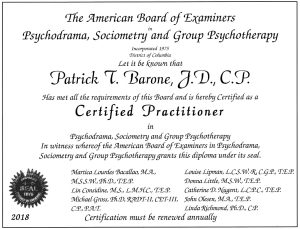Once you have been arrested on a Federal Complaint and Warrant, the government must hold a preliminary exam with 14-21 days unless you consent, and good cause is shown. Otherwise, the rules require that you be released. However, you can only be held on a complaint. You cannot be prosecuted further on a complaint and warrant. To prosecute you further, the government must either file an information or obtain an indictment.
To better understand this, it is helpful to consider that when the government believes that you have committed a felony over which the federal courts have jurisdiction, the prosecution for this crime may be initiated by the government in one of three ways. The most common of the three is the criminal indictment. However, in certain circumstances, the government may determine that there is a need to forgo the grand jury and instead will prepare and file a complaint. This procedure is governed by Rules 3-5.1 of the Federal Rules of Criminal Procedure.
A complaint, and the necessary probable cause to support it, may be based in whole or in part on hearsay. According to Rule 3 of the Federal Rules of Criminal Procedure, a complaint must contain the essential facts of the crime alleged, and must be presented to a magistrate judge, under oath. Rule 4 of the Federal Rules of Criminal Procedure provides that, in reviewing the warrant and deciding whether to issue an arrest warrant, the magistrate judge must determine whether the complaint establishes probable cause to believe 2 things; first that the crime alleged has been committed and that second that the defendant committed it.
 It can be difficult to know if you are under a federal investigation. However, if you are aware, there are several clues that you are under investigation by the Federal Government. One of them is the receipt of a target letter.
It can be difficult to know if you are under a federal investigation. However, if you are aware, there are several clues that you are under investigation by the Federal Government. One of them is the receipt of a target letter. Michigan Criminal Defense Lawyer Blog
Michigan Criminal Defense Lawyer Blog



 The purpose of the presentence investigation and report is to provide comprehensive information about the offender that is both objective and accurate. This information and report will be used by the court in making the appropriate sentencing decision. The report also will assist the Bureau of Prisons in making proper determinations relative to the management of the inmates under their supervision.
The purpose of the presentence investigation and report is to provide comprehensive information about the offender that is both objective and accurate. This information and report will be used by the court in making the appropriate sentencing decision. The report also will assist the Bureau of Prisons in making proper determinations relative to the management of the inmates under their supervision. The Barone Defense Firm is pleased to announce that founding member Patrick T. Barone has become the first Michigan lawyer to obtain certification as a Trainer, Educator and Practitioner (TEP) of Psychodrama.
The Barone Defense Firm is pleased to announce that founding member Patrick T. Barone has become the first Michigan lawyer to obtain certification as a Trainer, Educator and Practitioner (TEP) of Psychodrama. The best way to understand federal prescription fraud is to look at a case where this has happened. For example, the United States Department of Justice and the State of New York recently announced an indictment on federal health care fraud charges on a licensed pharmacist and business owner in New York.
The best way to understand federal prescription fraud is to look at a case where this has happened. For example, the United States Department of Justice and the State of New York recently announced an indictment on federal health care fraud charges on a licensed pharmacist and business owner in New York.